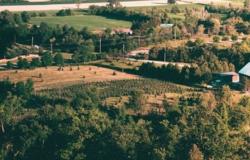The largest program of private grants awarded to non-governmental organizations in our country, In State of Bine, this year provides non-governmental organizations with non-refundable funding totaling one million euros for the implementation of project proposals in three essential areas – culture, sports and healthy living – which come to the aid of beneficiaries from vulnerable groups or communities. The financing is fully provided by the Kaufland Romania company, co-initiator and sponsor of the program.
The seventh edition of the In Stare de Bine program opens between April 24-26 with registrations for the first call for projects this year, which has a budget of 600,000 euros. The maximum amount allocated for a single winning project is 60,000 euros. More information on the eligibility of applicants and partners can be found in the Applicant Guide https://instaredebine.ro/wp-content/uploads/2024/03/Ghidul-Solicitantului_2024.pdf
Also this year, there will be two more calls for projects, for which the funding ceilings are 50,000 euros per project (for call 2), respectively 35,000 euros (call 3).
In this year’s edition of the program, the first two calls will give priority to those initiatives that also involve the participation of communities alongside NGOs. The third call for projects, named ÎnStareSăAjut , will be launched in the fall and targets specific needs or exceptional situations – such as the increase in drug use among teenagers and young people, addressed in last year’s ÎnStareSăAjut projects.
As with the six previous editions, the calls for projects are managed by the Foundation for the Development of Civil Society (FDSC), the organization that is responsible for the implementation of the program and that, together with Kaufland Romania, developed the concept of this NGO support program. The selection of the winning projects will be made through a competitive process that includes a stage of pre-selection of files, followed by a presentation and an interview in front of a jury.
Why is this initiative so important?
Since its launch, in 2018, until now, In Stare de Bine has remained the largest private non-refundable grant program for NGOs operating in Romania.
In the six years of its existence, a number of 182 projects carried out by 140 NGOs have been supported, with total funding of around 6.2 million euros. Starting from 2020, three ÎnStareSăAjut appeals were organized, as well as five editions of the program Creștem ONGuri ÎnStareDeBine , an organizational development program intended for NGOs, in which 134 organizations have participated so far.

“We particularly pursue large-scale projects with long-term impact, as well as innovative initiatives, united by a common objective: improving the quality of life in the community”, says Katharina Scheidereiter, Kaufland Romania & Moldova CSR Manager. “Also, we quickly adapt to exceptional situations and intervene according to needs. The strongest example of adaptation is the call for projects ÎnStareSăAjut , originally developed independently as an emergency solution to mitigate the impact of the COVID-19 pandemic among vulnerable communities, and which later became a permanent component of the program. ÎnStareSăAjut now works as a funding mechanism for projects that address urgent social issues, such as for example drug use among teenagers.”

Six years of projects for children with disabilities, minorities or children with cancer
The three priority axes of the program – culture, sport and healthy life – were not chosen by chance. “It was a joint effort of Kaufland Romania and FDSC to extend funding opportunities to NGOs in Romania and to themes that are less funded (for example culture and sports)”, says Laura Cireașă, Program Coordinator at FDSC .
Gradually, the program expanded across the country, including in rural areas, where the problems facing communities are particularly acute. “In 2023, in particular, we reached the interventions from projects in 35 counties and in Bucharest, and 38% of the financed projects took place in the rural environment”, says Laura Cireașă.

Among the hundreds of projects that have been supported in these years are, for example, the establishment of shelters or support centers: a social center for homeless people in Iași, an emergency shelter for LGBT+ youth in Bucharest, a mobile dental office for children with cancer (in Bucharest) and a socio-medical center for minor victims of human trafficking (in Argeș).
But the funded projects include various forms of interventions in support of vulnerable people, such as, for example: the kayak training program for people with mental disabilities held on Lake Titan in the capital; the cultural revitalization project of some former mining communities in the Jiului Valley; the music festival Grand Opera Pata Rât from Cluj (which brings together Roma and non-Roma musicians); Alzheimer cafes designed as a meeting place for people living with this condition, relatives and specialists; an international judo tournament dedicated to mentally disabled and institutionalized children, etc.

The first five-year impact study, expected at the end of 2024
The impact of these projects on the communities served was not easy to quantify, program representatives say. “The needs from which these projects start are very complex, and a long-term intervention would usually be needed for a clear result,” says the FDSC representative. “We are aware that some 6-10 month projects will not be able to produce some fundamental changes in communities that face multiple vulnerabilities. We consider projects as cogs in a wider set of measures and interventions, which are – or should be – carried out by communities and public authorities as well. We are currently working on a comprehensive impact analysis of the first five years of the “In Good Condition” program to understand its effects both among direct beneficiaries and the organizations that implemented them and, more broadly, for the non-governmental sector in general. We estimate the launch of the impact study towards the end of 2024.”
Tags: million euros Kaufland Romania NGOs applications call projects April
-










